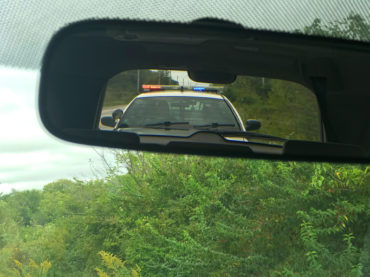You are here
Home 🌿 Marijuana Politics 🌿 Top court upholds police search for marijuana during roadside stop 🌿Top court upholds police search for marijuana during roadside stop

With the federal government aiming to legalize marijuana possession, insurers are looking for some assurances that the Cannabis Law will not lead to increased claims frequency and liability; this, in turn, relates to the ability of police to search vehicles and arrest people suspected of violating drug and alcohol laws.
So insurers may be interested to know that the Supreme Court of Canada recently refused to hear a case that would have narrowed the basis upon which police could search for and seize marijuana during a traffic stop. Canada’s highest court announced April 19 that it will not hear an appeal from Tarek Lotfy, who was convicted of possession for the purpose of trafficking.
Lotfy was pulled over by a police officer in B.C. in 2012 for driving 118 km/h in a 90 km/h zone. The officer, Constable Matthew Innes of the RCMP, testified that Lotfy appeared nervous and that his truck had a strong odour of air freshener. So the officer went back to the police vehicle and ran Lotfy’s name through the Canadian Police Information Centre. The officer returned several minutes later to Lotfy’s truck, at which point he reported he could smell marijuana.
Constable Innes then searched the vehicle and arrested Lotfy after finding three kilograms of pot. Court records indicate that the officer looked in the back seat and found a hockey bag and a reusable grocery bag, each of which contained small bags with marijuana.
Lofty challenged the lawfulness of both the search and arrest in court. But he was convicted in 2016 by Justice George Macintosh of the Supreme Court of B.C. for possession for the purpose of trafficking. His conviction was upheld by the B.C. Court of Appeal in a ruling released in November 2017.
Lotfy’s argument is based in part on the fact that the arresting officer did not write in his notebook that he noticed a strong smell of air freshener when he initially approached the truck. Lotfy also argued that the arresting officer failed to consider that Lotfy could have had a license to have medical marijuana.
In a unanimous decision upholding Lofty’s conviction, the B.C. Court of Appeal noted that Canadian courts in the past have “upheld warrantless arrests and detentions based in whole or in part on the odour of marijuana.”
The B.C. appellate court also agreed with the Ontario Superior Court of Justice in R v. Dhillon, a criminal case involving a motorist charged for failing to provide a breath sample. “While good note taking can and often does reflect good police work, the fact that an officer does not have something in his or her notes does not mean that it did not occur,” Ontario Superior Court of Justice Michal Fairburn of the wrote in Dhillon.
Bill C-45, currently before the Senate, would make it legal for people 18 years of age and older to possess and share up to 30 grams of dried cannabis. Youth aged 17 and younger would be allowed to possess up to five grams with no criminal penalty.
420 Intel is Your Source for Marijuana News
420 Intel Canada is your leading news source for the Canadian cannabis industry. Get the latest updates on Canadian cannabis stocks and developments on how Canada continues to be a major player in the worldwide recreational and medical cannabis industry.
420 Intel Canada is the Canadian Industry news outlet that will keep you updated on how these Canadian developments in recreational and medical marijuana will impact the country and the world. Our commitment is to bring you the most important cannabis news stories from across Canada every day of the week.
Marijuana industry news is a constant endeavor with new developments each day. For marijuana news across the True North, 420 Intel Canada promises to bring you quality, Canadian, cannabis industry news.
You can get 420 Intel news delivered directly to your inbox by signing up for our daily marijuana news, ensuring you’re always kept up to date on the ever-changing cannabis industry. To stay even better informed about marijuana legalization news follow us on Twitter, Facebook and LinkedIn.




